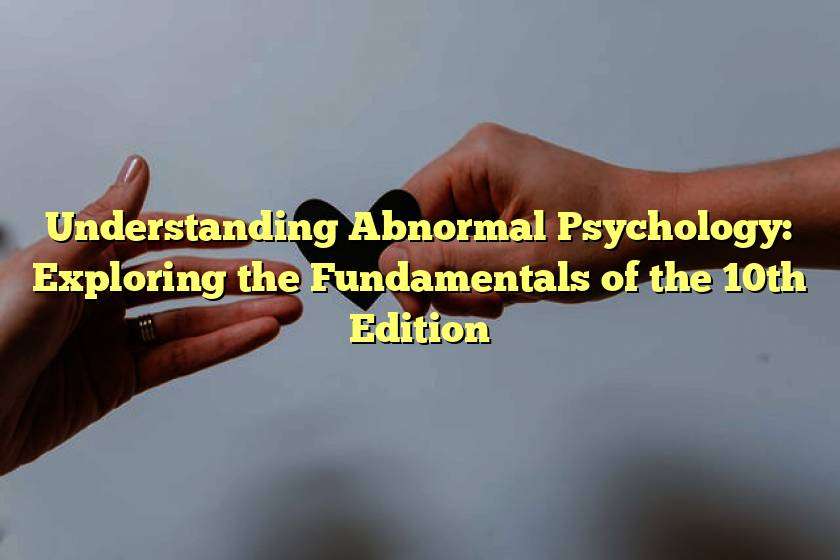Abnormal psychology is a critical field in psychology that deals with the study of mental disorders or abnormal behavior. It seeks to understand the causes and effects of these disorders and how they can be managed or prevented. The subject is complex, and studying it requires a deep understanding of various theories and concepts. The "Fundamentals of Abnormal Psychology 10th Edition" is a comprehensive guide that explores the basics of this field. In this article, we will delve into some of the essential topics covered in the book.
What is Abnormal Psychology?
Abnormal psychology is an area of psychology that deals with the study of unusual behavior patterns that deviate from the norm. It involves the study of various mental disorders, including anxiety disorders, mood disorders, personality disorders, schizophrenia, and other disorders. The primary aim of abnormal psychology is to provide insight into the causes, effects, and management of these disorders.
The History of Abnormal Psychology
Abnormal psychology has a rich history dating back to the ancient civilizations of Greece and Rome. Philosophers such as Hippocrates, Aristotle, and Galen were among the early scholars who contributed to the development of the field. They proposed various theories and concepts that sought to explain abnormal behavior. Over the centuries, new theories and perspectives emerged, leading to a more comprehensive understanding of mental disorders.
Causes of Abnormal Behavior
The causes of abnormal behavior are complex and multifaceted. They range from biological factors such as genetics and brain chemistry to environmental factors such as trauma and stress. Individual factors such as personality traits and cognitive patterns can also contribute to abnormal behavior.
Types of Disorders
Mental disorders can be classified into several broad categories, including mood disorders, anxiety disorders, personality disorders, and psychotic disorders. Each category comprises several specific disorders, each with unique symptoms and treatment approaches.
Diagnosis and Treatment
Diagnosis of mental disorders requires a thorough assessment of an individual’s symptoms and history. Treatment usually involves a combination of medication, psychotherapy, and lifestyle changes. The goal of treatment is to manage symptoms, improve quality of life, and prevent relapses.
Future Directions in Abnormal Psychology
Abnormal psychology is a rapidly evolving field, with new research and advancements being made every day. Advances in technology and brain imaging techniques have opened up new paths of research that promise to provide a deeper understanding of mental disorders. Researchers are also exploring new treatment approaches, such as digital therapeutics and personalized medicine.
In conclusion, the "Fundamentals of Abnormal Psychology 10th Edition" is an essential resource for anyone seeking to understand the basics of this field. It covers a broad range of topics, from the history of abnormal psychology to current research and future directions. Mental disorders can be devastating, and they affect millions of people globally. Studying abnormal psychology can help us gain a better understanding of these disorders and how we can manage or prevent them.



